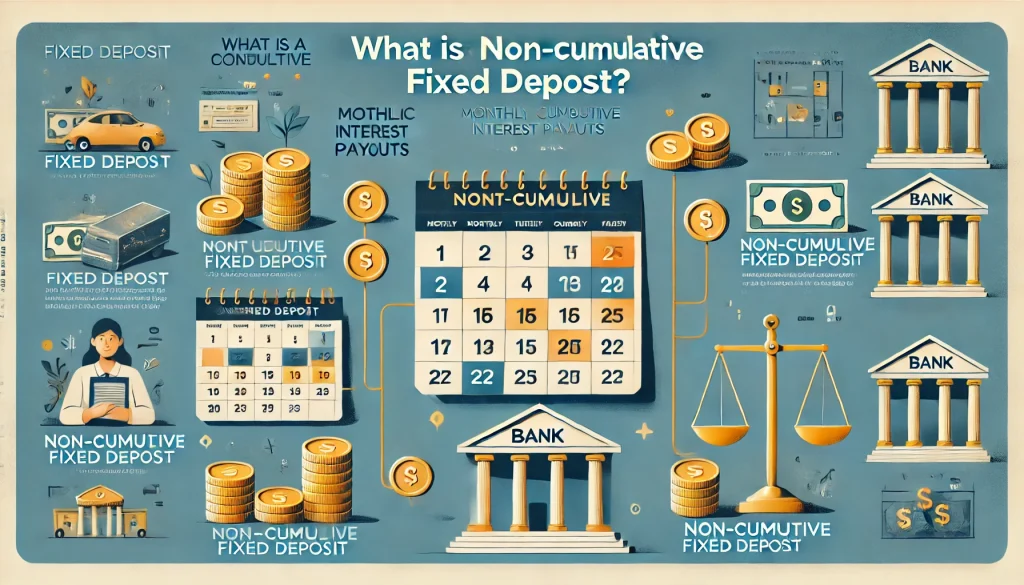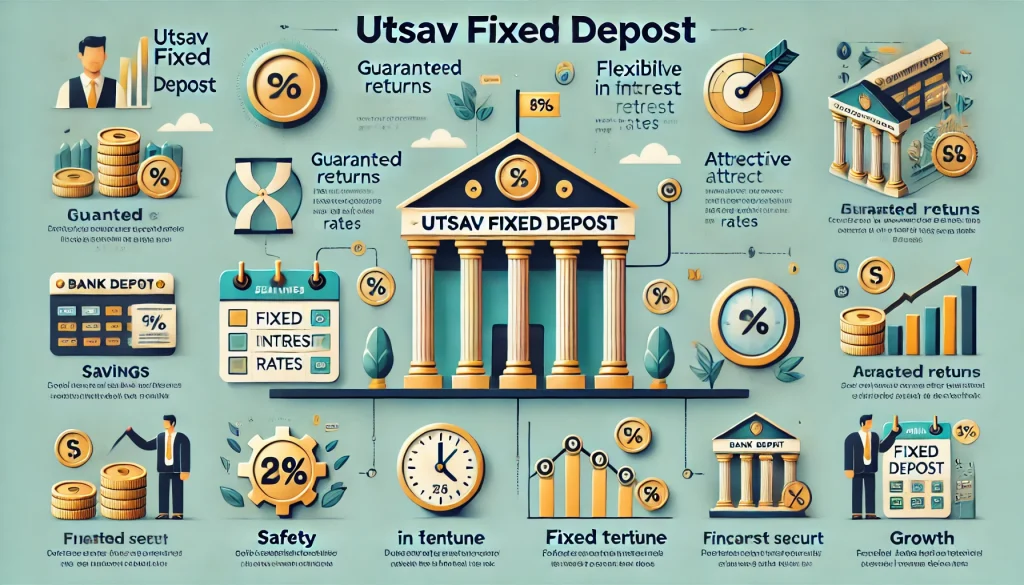
Fixed deposit is a highly popular investment option among risk-averse individuals, known for its high-yield and assured returns. Considered a better alternative to savings accounts, it comes with flexible tenure and attractive interest rates.
While investing your hard-earned money in FD is a secured option, you will be subject to paying tax on FD interest. Hence, it is crucial for every investor to understand the tax implications associated with fixed deposits before making any decisions.
In this blog, we will provide you insights into what tax on FD interest is and how it affects a taxpayer’s financial standing throughout a year.
What is Tax on FD?
As per the Income Tax provisions of the Government of India, TDS or Tax Deducted at Source is applicable to the income sources of a taxpayer. Therefore, the amount of interest earned from FD is considered a part of the gross annual income which is subject to taxation as per the applicable slab rate of an individual.
How is Tax on FD Interest Calculated?
The interest income earned from investing in a fixed deposit is taxable. In a financial year, the total amount of interest income is added to an investor’s annual income and is subject to taxation as per the applicable slab rate.
Since FD interest comes under “Income from Other Sources”, the financial institution deducts the tax at source while crediting the interest to the account holders. During the final tax obligation, the TDS gets adjusted by the applicable tax division. For this adjustment, an account holder has to provide Form 26AS, specifying the details of TDS deducted on FD. However, taxation on FD is only applicable if an account holder earns ₹2,50,000 in a financial year. Here is a step-by-step guide on how banks and financial institutions calculate tax on fixed deposits.
- Step 1: Add the total amount of interest earned from an FD under ‘Income From Other Sources’.
- Step 2: Add all the other heads of income.
- Step 3: Consider all the deductions and exemptions that apply to your taxable income.
- Step 4: Multiply the total income with the applicable slab rate.
Once you go through the above steps, you will get the payable amount of tax on FD interest.
When to Pay Tax on Interest Income?
Generally, all tax liabilities on interest income earned in a financial year should be paid before or on 31st March of every year. In case the tax liability is more than ₹10,000, an account holder is liable to pay tax in advance, in the form of advance tax. Advance tax is payable in 4 instalments before the financial year ends.
Understanding TDS in Relation to FDs
The bank deducts the TDS on FD interest and further adjusts the TDS amount by the individual’s tax liability. Here’s how Tax Deducted at Source is related to Fixed Deposits.
1. In case of zero TDS deductions on FDs
An account holder will not be liable to Tax Deducted at Source if the interest income of a general citizen is less than ₹40,000 in a financial year. In the case of senior citizens, the threshold limit of TDS is ₹50,000.
2. In case of TDS deducted at 10%
The bank deducts TDS at 10% if the account holder earns more than ₹40,000 in a financial year as interest income. This limit is extended to ₹50,000 for account holders who are above the age of 60.
3. In the case of TDS deducted at 20%
In case an account holder fails to submit their PAN information, he/she will be liable to a TDS on bank FD interest at the rate of 20% if the interest amount is above the threshold limit.
Tax on FD Interest for General Citizens
The interest earned from fixed deposits is subject to TDS at a rate of 10%, in the case of general citizens. However, this TDS provision only applies to FD account holders who earn more than ₹40,000 in a financial year as interest.
Tax on FD Interest for Senior Citizens
As per Section 80TTB of the Income Tax Act, a senior citizen can claim a tax deduction if the interest income earned from an FD is less than ₹50,000. Besides FDs, this tax provision also applies to interest income received from savings accounts or recurring deposits. To claim this tax deduction, senior citizens have to provide their PAN Card details and file for an ITR (Income Tax Return).
Is FD Interest Taxable if My Monthly Income is Below the Tax Limit?
If the total income including the interest amount is less than ₹2,50,000 in a financial year, the account holder will be exempt from taxation on FD interest and can apply for a refund of the TDS. However, the account holder will be liable to pay additional tax if the total income of an account holder falls under a higher tax bracket.
What is Form 15G and 15H?
Form 15G and 15H are self-declaration forms that resident Indians use in order to avoid TDS on bank FD interest if the income is below the basic taxable limit. Form 15G applies to all residents and members of HUFs and Trusts who are under 60 years of age. On the other hand, Form 15H is exclusively applicable to senior citizens. To avail the TDS exemption, eligible entities need to submit the specific form along with their PAN information.
Ways to Reduce or Save Tax on Fixed Deposits
Let us discuss some of the common ways to reduce or save tax on FD interest.
- TDS is not applicable on interest earned from post office FDs. Therefore, an individual can save tax by opening a fixed deposit account with the post office.
- You can invest in a tax-saving FD account with a lock-in period of 5 years. A tax-saving FD enables an individual to reduce their taxable income by ₹1,50,000 in a financial year.
- By dividing the total FD investment and depositing it in fixed deposits of different banks, investors can prevent the interest income from each FD from exceeding the ₹40,000 limit in a financial year.
- Individuals can also save tax by spreading their FD investments over 2 years, thereby reducing the taxable interest of a particular year. They can do so by depositing in the middle of the year or towards the end of the financial year.
Conclusion
When it comes to maximising one’s financial gains, it is crucial to have a clear understanding of the applicable tax on FD interest. Non-compliance with Indian tax laws can lead to penalties. Thus, make sure to stay updated with changing tax rates and other provisions under the Income Tax Act.
FAQs
No, the interest earned from 5-year or tax-saving FD is subject to taxation. However, it offers a tax deduction of up to ₹1,50,000 in a financial year as per Section 80C of the Income Tax Act, 1961.
There is no such type of fixed deposit for resident Indians that is fully exempt from taxation. However, interest earned from FCNR and NRE FD accounts is tax-free.
The interest income earned from a fixed deposit is exempt from taxation up to a certain limit. In the case of general citizens, interest income of up to ₹40,000 is tax-free. On the other hand, senior citizens get an exemption on interest income of up to ₹50,000.


